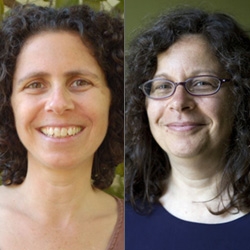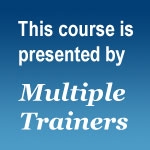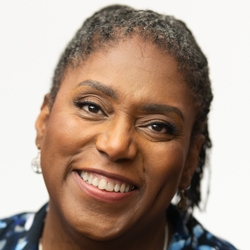
Search Results: understanding
-
There are various ways to be known. Learn how to engage and make clear requests accordingly. This includes getting clear in yourself about what exactly you want known; communicating how important it is to you; sharing examples in your life of being known; requesting and negotiating from the energy of the met need; letting the other person know whether or not the relationship is really sustainable for you if the need goes unmet long-term; and checking the other person's capacity.
-
When we're received with resonant understanding painful moments can lessen their charge and became part of the whole tapestry of life -- important but no longer able to hijack us into the eternal re-run of pain. When held this way, we can touch the memories with our attention the way one touches a newly repaired tooth with the tongue, searching for the old roughness, the old wound, but not finding it.
-
How can we hold love, understanding and compassion -- and still confront people about the harmful impact of their actions, hold them accountable, take action, speak truth and advocate for change... all in a manner fully aligned with our values and vision? Read on for how we can do accountability; what kind of action we take and with what motivation; and what our movements for change can look like from this lens.
-
When someone expresses upset about our actions, and we focus on our intention being seen and understood (e.g. "I didn’t mean to hurt you”) it doesn't support the speaker in being heard more deeply with care. Here we'll explore this dynamic in a way that supports more clarity and the possibility of greater personal liberation. Read on for more.
-
Try this four step exercise for making connection requests to support understanding, and to learn what effect your words had on the listener. In this exercise you'll choose a situation where you have clarity about what outcome will really work for you (your solution request), but where you imagine your desired outcome may not work for the other person, and/or are not sure there is sufficient connection for mutual trust.
-
Here we explore variants of conflict patterns in part two (of this two part series) that include: refuting "straw man arguments"; not checking understanding, repeating unhelpful behaviour; repeatedly asking for what's already given; asserting rather than demonstrating responsiveness; assumptions; denying conflict exists; neglecting interdependence; stonewalling; absence of curiosity, humility, respect, empathy or care (even when reflecting).
-
Create your own new personal practice using the Pathways to Liberation: Matrix of Self-Assessment and increase your capacity to access skills when you need them the most.
-
Often making an apology is not enough because people want greater depth of understanding and empathy. Instead of judging ourselves or feeling guilt we can "mourn" what we did that stirred up pain in others. This can bring about a sweet pain that leads to change. Then we can ask ourselves what we can do next time and make a commitment to do this and/or offer a regrets to the person expressing feelings and needs.
-
-
Ask the Trainer: "Can you share stories of transforming group conflict, or is NVC strictly intended for 'one-on-one' work?"
-
When we are transparent about our concerns, brainstorm solutions together, and look towards making a decision with the other person, we can increase understanding, partnership, and mutual support. This invites people to work on the same issue from the same direction, collaboratively seek solutions, and tap a deeper wisdom. In the end, the future survival of our species depends on this kind of active interdependence.
-
“Nonviolence” is not just a political tactic. It is a “soul force,” a courageous and compassionate stand in the face of what seems to us unjustly unequal, oppressive, and violent. It is the force of love meeting and transforming what appears to not be love.. It is the force of love meeting and transforming what appears to not be love. It is speaking and listening with courage, compassion, and an open heart and mind and rooted in our truth in a way that bridges understanding. And doing so without demand nor trying to convince -- all in the face of any anger, fear, oppression, inequality, violence or disagreement.
-
- Discover how mediation is a fundamental social skill that everyone can learn
- Gain the skills to stay centered when a conflict becomes heated
- Learn how to lead a dialogue toward sustainable agreements
- Help facilitate connection and creativity to discover and meet everyone’s needs
-
John and Stephanie combine mediating conflict, parenting and study of brain science to this ground-breaking course recording on how to funnel your anger and your child’s anger toward mutual caring and peace.
-
Join CNVC Certified Trainers, Raj Gill and Mary Mackenzie as they explore the Nonviolent Communication process of Empathy. This audio will support people with a basic understanding of Nonviolent Communication who want to deepen their ability for empathic presence.
-
Ask the Trainer: "A participant in our beginners' NVC practice group asked the co-facilitators if there was a confidentiality agreement that was typically used in NVC practice groups?"
-
Are you eager to translate your vision of a world where everyone’s needs matter into a tangible reality? Do you long to discover your unique role in responding to the challenges of our times? If, so join Miki for 12 sessions that will propel you on your way!
-
- Celebrate and nurture your relationship to the Earth — and each other!
- Explore your connections to family, partner, work, nature, self and more
- Discover new ways to grow in community and work together to make this world a better place
- Engage and immerse yourself in NVC while making new friends!
-
- Understand the essential relationship between personal healing and social change — and how to communicate it to others.
- Increase your compassion capacity for different ways of being in the world.
- Get clarity about the difference between equity and equality — and how to generate equitable processes in your communities and networks.
- Obtain tools to explore the various factors that contribute to your understanding of power and privilege — including your own.
-
- Gain a deeper insight into the spiritual practice of NVC as taught by Robert Gonzales
- Enhance your emotional intelligence and self-compassion
- Learn compassionate self-talk techniques and cultivate more inner peace
- Approach change with a peaceful mindset, rather than anxiety and fear


















